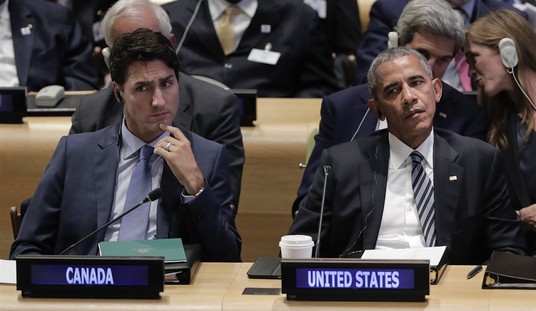Twice over the course of four days, an 800-year-old church in Stockholm was firebombed. On Sunday, Jan. 24, 2021, several Molotov cocktails were hurled at the 12-century Spånga church, located in a Muslim majority area.
According to the church’s pastor, “the alarm was triggered when a window was smashed and flammable liquid thrown at the front gate and one of the windows. However, the fire was quickly put out by the police, who used a powder extinguisher.”
Ännu en brandattack mot kyrkan i Tensta | Fria Tider https://t.co/RAd0H03N2x
— ✡️🇸🇪🇮🇱 (@noikls) January 24, 2021
The same church had been fire-bombed just four days earlier, on Jan. 20, 2021: Two explosives were hurled at and smashed through the church windows, and another was hurled at the church gate.
Moreover, according to one report,
Spånga parish has been subjected to attacks on several previous occasions. In December 2018, an explosive device was detonated in the same parish. No one was convicted for the blast.
Hailing from the 12th century, the Spånga Church is one of the oldest in the Swedish capital. It is located on the outskirts of Tensta and is flanked by Rinkeby, both notorious for their heavy presence of immigrants (about 90 percent of the population)… Both areas are dominated by immigrants from Muslim countries and are formally classified as “particularly vulnerable” (which many consider to be a palatable euphemism for a “no-go zone”) due to failed integration and major problems including unemployment, rampant crime and Islamic extremism.
Attacks against churches have become a familiar sight in Sweden. Last year alone, a number of churches, mostly those in troubled suburban [i.e., heavily Muslim migrant] areas, were subjected to various types of attacks and vandalism, including those in Gottsunda, Uppsala and Rosengård, Malmö.
Actually, attacks on churches have become “a familiar sight” all throughout Western Europe, wherever there is a notable Muslim/migrant presence. In France, which has one of if not the largest Muslim populations in the Western world, two churches are reportedly attacked every day.
Along with arson attempts, typically—and rather with diabolical intent—altars are desecrated, crucifixes broken, statues mocked and/or beheaded. In one instance, vandals plundered and used human excrement to draw a cross on the Notre-Dame des Enfants Church in Nimes; consecrated bread was found thrown outside among garbage. One week later, vandals desecrated and smashed crosses and statues at Saint-Alain Cathedral in Lavaur; they mangled the arms of a crucified Christ in a mocking manner and an altar cloth was burned.
The same situation prevails in Germany, which also has an immense Muslim population. In Bavaria and the Alps alone, some 200 churches have been attacked and many crosses broken: “Police are currently dealing with church desecrations again and again,” one November 2017 report noted before adding, “The perpetrators are often youthful rioters with a migration background.”
Moreover, the desecration of churches has for centuries been a Muslim trademark—a sort of “Islam was here.” As copiously documented in Sword and Scimitar: Fourteen Centuries of War between Islam and the West, whenever Muslims invaded Christian nations, untold thousands of churches were ritually desecrated and despoiled, their crosses and other Christian symbols systematically broken. Think what ISIS did but on an exponential level—and not for a handful of years but for over a millennium.
Despite all these telltale signs, Christian leaders in Sweden have responded with the usual cluelessness. “I do not know why anyone would want to do this,” said the church’s pastor, Jerker Alsterlund.
Perhaps because their religion teaches them to see and treat churches as “dens of iniquity … worse than bars and brothels”?
Other Christian leaders responded by compounding their cluelessness; they projected their own Christian principles onto those who follow a distinctly different set of principles: “It is a deeply unempathetic person without love and respect who did this,” said MP Anders Österberg, previously vice chairman of Spånga-Kista parish.
Unlike Christianity, which teaches “empathy” and “love and respect” for the “other,” Islam teaches hate and contempt for the non-Muslim, the “infidel,” who is referred to as an animal in the Koran, the Islamic holy book that further commands Muslims to hate and oppose all non-Muslims—“even if they be their fathers, sons, brothers, or kin” (Koran 60:4; 58:22).
Even so, “An attack on a religious building is a violation of values deeply rooted in human identity,” said Björn Cedersjö of the Swedish Christian Council.
Once again; failure to step outside oneself and one’s religious (in this case, Christian) principles and appreciate the worldview of another set of principles—those of Allah and his prophet: to Muslims, only mosques are “religious buildings.” All other temples—Christian, Jewish, Buddhist, Hindu—are, as aforementioned, places where the worst forms of evil are propagated. Why? Because, unlike secular buildings and institutions, non-Muslim places of worship deal with the divine and, in so doing, contradict the teachings of Allah.
Incidentally, such ignorance and projection is not limited to the leadership class, as one might expect, but infects the laypeople too: “Sad! The church of my childhood, where the graves of my parents and many friends lie,” read one tweet treat concerning the firebombings of Spånga Church: “Who or what hates and wants to harm our churches?”
“Sad,” indeed.
Raymond Ibrahim, author of Sword and Scimitar: Fourteen Centuries of War between Islam and the West, is a Shillman Fellow at the David Horowitz Freedom Center, a Judith Rosen Friedman Fellow at the Middle East Forum, and a Distinguished Senior Fellow at the Gatestone Institute.









Join the conversation as a VIP Member